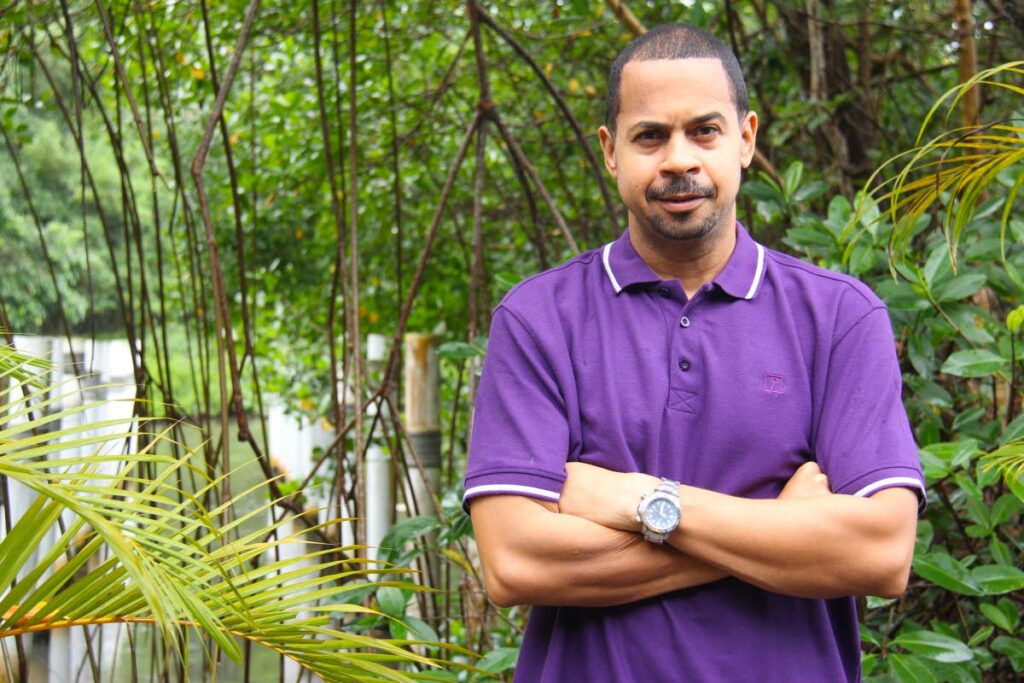Diversification – great for keynote speeches

TALK ABOUT diversification has hung in the air for as long as I can remember. Governments past and present certainly talked a good game of getting the country into fossil-fuel rehab, but none has ever actually assembled the sprockets and gears to make it happen.
Only recently Minister of Energy Stuart Young assured most energetically, "Hydrocarbons are here to stay."
Except, as most know, hydrocarbons are not here to stay.
Diversification takes many shapes and forms, most of which successive administrations have failed to understand. This is mostly because they didn't have to. Revenues from oil and gas, even on the wane, continually delayed a genuine diversification thrust.
Furthermore, our entire political culture is scaffolded around spending (squandering) revenues wrung from the energy sector to keep reanimating the political cadavers/parties that haunt our lives.
In the absence of an aggressive, co-ordinated push towards diversification, one supported by government agencies that can help drive that change, many small and medium-sized businesses likely struggle to become export-focused.
A few years ago I was producing DVDs out of two television series I'd done. The idea was to feed the market abroad and continue to raise revenues that would be channelled back into the production of the shows. It was one of those "good on paper" plans.
The demand was there: homesick Trinis longing for reminiscences of what they left behind. The sales we were getting on Amazon showed there was burgeoning potential in the diaspora and beyond. We were getting nibbles in the UK, US, Europe, Australia, and even Japan.
So the demand existed but we couldn't figure out how to tap into it and scale. We needed market intelligence.
That's where the Government and the missions abroad are supposed to come in. It seems reasonable to think these state investments in official presences in foreign countries would at least be gathering data about Trinis living abroad, as well as commercial opportunities locals could rustle up.
We needed to know where our ideal audience was; where they lived and gathered. It wasn't enough to say there are Trinis in Miami, for example. Most of the groups we encountered there were principally interested in Carnival and fetes, not intellectual products like DVDs about wildlife and culture. They were not "our people."
Instinctively, we knew we had to build a website to market the DVDs. Content was created to find the expat audience most likely to buy our products. Understanding how to target that demographic, though, isn't the easiest thing. Facebook targeting as it exists now wasn't around then.
I approached ExportTT (and several other agencies) for advice and any information that might be useful. The people at ExportTT, while pleasant and accommodating enough, didn't seem to get what I was talking about.
My DVDs were manufactured in the States so I didn't need to physically export them there. At the time ExportTT, or at least the people with whom I spoke, only thought of exports in the context of shipping a product abroad. My challenge was market access – something about which neither they nor the Ministry of Trade seemed to have any information. It was beyond belief.
Worse still, time was against me. DVD sales, in general, were already wobbly after the 2008 global recession. In the recovery years, the DVD market was further eroded by on-demand digital offerings. The final nail in the coffin for this now obsolete technology was the explosion of streaming services.
While the DVDs did extremely well locally, I was never able to execute my ambition of mining the wider foreign market. Consequently, I had to change course and shelve my plans for global conquest – at least with DVDs.
How many small and medium-sized operations have their growth stunted because this country simply isn't set up to pursue diversification meaningfully beyond photo ops and grandiose but ultimately hollow words?
People tend to think that small businesses only want handouts from the Government, but this is a simpleton's perspective. Beyond financing, many entrepreneurs need technical support, knowledge and expertise. Without these inputs all the capital or "big data" gun talk in the world won't get them, or the country, to the goal of diversification.
A modern, resilient economy can only come from a healthy private sector that plays in the global economy with a diverse array of goods and services. It cannot be achieved by gassy keynote speeches and shortsighted politics.


Comments
"Diversification – great for keynote speeches"